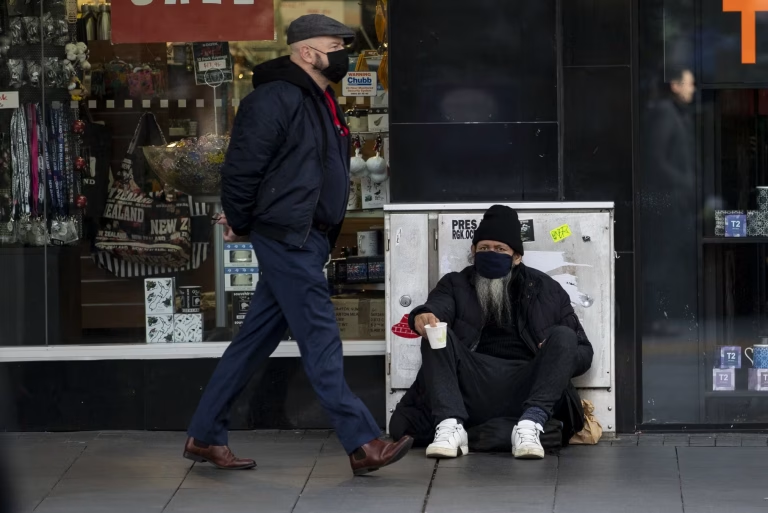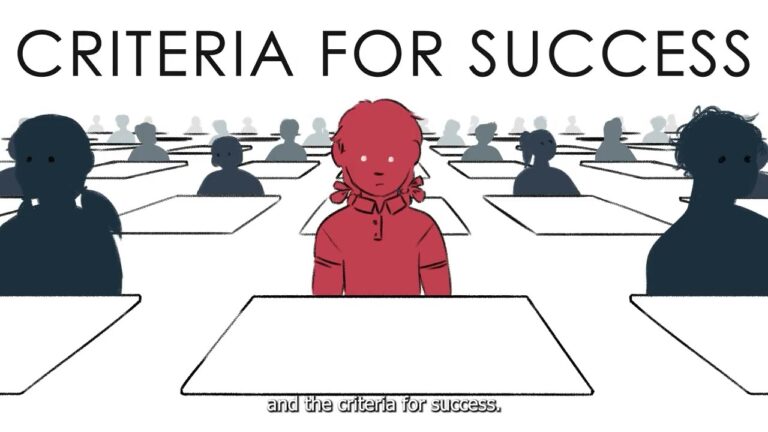Winston Keeps His Pledge To The Small Businesses Of Small-Town New Zealand

WHO WOULD HAVE THOUGHT that the most accomplished class warrior to emerge from the struggle to improve New Zealand’s labour laws would be Winston Peters? No one else with a dog in this fight saw the class issues at stake as clearly as Winston Peters and NZ First. Not the employers; not the unions; and certainly not the Labour, National or Green parties. Peters and his colleagues can walk away from this debate as the undisputed champions of small provincial business. The electoral consequences of NZ First’s decisive intervention should not be underestimated.
There is a strong temptation on the part of left-wing activists in the major metropolitan centres to write off the people of the provinces as a bunch of undifferentiated reactionaries. To your average Labour or Green activist, provincials are racist, sexist and homophobic “rednecks”. The sort of people who still see nothing wrong with sending a float filled with people in blackface down the main street of their little town. Hopeless and irredeemable, these voters are not worth wooing – unless you’re Stuart Nash. (And the less said about Stuart Nash the better!)
Winston Peters knows better. Like his predecessors in the Social Credit Political League, the NZ First leader is acutely aware that the small rural towns and provincial cities of New Zealand are hotbeds of class conflict. Not simply the classic Marxist conflict of capitalist versus proletarian, but also the no less bitter conflict between large and small businesses. Indeed, it is possible to characterise life in provincial New Zealand as a constant struggle of the particular against the general: of individual agency against institutional power.
People living in large cities have a bad habit of romanticising small towns. They like to think that in a place where everybody knows their neighbours life must be wonderful. The reality is almost the exact opposite. In a small community the social hierarchy is much more sharply exposed. Yes, everybody knows their neighbours – but they also know exactly where they sit in the social pecking-order. Fun, one imagines, if you are positioned at or near the top. Wretched, if you are located near the bottom.
The local lawyers and accountants, for example, are perfectly placed to know exactly how well, or how badly, their neighbour’s are doing. The town’s doctors and teachers are similarly well-positioned. If knowledge is power, then these provincial professionals have a lot to play with.
The senior managers of nationwide chains, salarymen who will not lose their houses if their executive decisions turn out badly, may look down their noses at the senior bureaucrats employed by local and central government but, in truth, their day-to-day jobs are distinguished by the same petty protocols; the same demands from above. Well remunerated, but subjected to unceasing “performance reviews”, many opt to take out their frustrations on those further down the totem pole.
Not that the owners of the town’s small businesses would include themselves among the pen-pushers’ inferiors. In their own eyes – and often in the eyes of their employees – they are town’s true heroes.
Independent of spirit, willing to have a crack, contemptuous of those whose only purpose in this world appears to be making the lives of people like themselves as difficult as possible, it is difficult not to admire these small businesspeople.
It is no mean feat to keep a business afloat in the provinces. Notoriously under-capitalised, they all-too-often keep their operations afloat by paying themselves less than their workers. They are no friend of the trade unions with their one-rule-fits-all approach, but neither are they friends of the banks who bleed them dry or the big firms who expect them to submit ridiculously low bids for the jobs they then take their own sweet time paying for.
But without these small business people the towns and cities of provincial New Zealand would die. Their absence is frighteningly easy to spot. Main streets are dead: their shopfronts boarded-up and the real estate agent’s “To Let” signs fading in the sun. The young people those shuttered businesses might have employed have either fled or broken bad. The only signs of life are around the local office of the MSD.
These are the towns NZ First is pledged to restore to economic health. Winston Peters and Shane Jones want those kids in jobs, earning money, dreaming of one day becoming their own boss – just like the man or the woman who took them on under the 90-day rule, to see whether they had what it took, and then employed them permanently when they proved themselves hard-working and trustworthy. The unions can knock on the boss’s door as often as they like – they will find few, if any, takers here.
Of course there are exceptions – but in small-town New Zealand it is more common to find the small employers and their workers united in solidarity against the people who live on the hill. It’s one thing to be paid by the taxpayers; to grow fat on the fees you charge; or draw the salary only a big corporation can afford to pay. It’s quite another to keep the town’s cars and trucks filled up and roadworthy; or to fill the bellies of its inhabitants with decent tucker. All those engaged in small businesses: both their owners and the people who work for them; have taken a bet on themselves. Very often that bet is lost. Fair enough. Making a small business pay has never been easy. All the players ask is that the game stays honest: that the deck isn’t stacked against them.
That is the pledge NZ First made to them – and that is the pledge it has kept. Wages are not always paid in cash. Sometimes they are paid in dreams. By honouring that currency, Winston Peters and NZ First have made the heroes of small-town New Zealand their own.







But the real and core reason why these conditions exist is because the rural sector was gutted by the treasonous neo liberalism of Roger Douglas and his little cabal.
Remember all the Post Office closures up and down the land?
Recall all the freezing works, forestry jobs , railways that were privatized / corporatized , and then sold off to the lowest overseas bidders ? And the ‘downsizing’ and the ‘making more efficient’ by sacking thousands and keeping on skeleton staff paid on flat rates?
Remember all the glowing promises of a ‘ level playing field ‘ , and cheaper prices because of ‘more competition’ ?
All BULLSHIT by stealth and by design.
We had low unemployment back then and the wealth from having people employed and recycling finance back into govt coffers through taxation more than offset any complaints about ‘inefficiency ‘ or ‘waste’ that the bogus arguments of the neo liberals used later on…
Now look at the exorbitant costs of electricity. Look at the obscene premiums charged for rental accommodation we now have because of the deregulated free market. Look how Telecom rorted NZ’s for decades before they were told to pull their horns in after our telecommunications infrastructure were sold off for a song. Look at all the workers on subsistence wages now in this country. Look at the unprecedented poverty levels with family’s holding two jobs yet living with their family’s in cars on the streets. Look at the constant political bickering over funding for basic health and education because the domestic economy has been gutted by the same neo liberal pirates for so long .
Remember the mass ongoing protests against the Employment Contracts Act 1991 ? ,- and then the sell out to big business by the public unions vetoing the call of the private unions who wanted a rolling general strike? You said so yourself , Chris.
Recall Michael Fay and David Richwhite and the BNZ bank sale? The deregulation of NZ ‘s banking industry’s and the buying up of the same by Australian banks, with their punitive ‘fees’ and jacked up mortgage interest rates, – particularly affecting farmers and private residents alike?
If we really wanted to rectify the current situation we live under and resuscitate the rural sector we would be dismantling the neo liberalism of the past 3 decades.
But not before characters like Roger Douglas, Ruth Richardson, Jenny Shipley , Mike Moore and all the rest responsible were dragged before our courts for treason and had their titles stripped. And for posthumous penalty’s, – assets and the like to be stripped. Irrespective of current beneficiary’s of their nefarious wrong doings. Then we should be looking at the NZ Institute ( formerly called the Business Roundtable ) and doing the same.
——————————
Those services mentioned above were built up by generations of gritty New Zealanders over decades to provide the basic necessities of life and ensure people did not live in poverty in a purported first world nation. They were the great generation, who saw what war, poverty and deprivation did to a people. The population were happy to pay taxes for those first class services because it was considered vital and even the lowest of workers could afford to pay it out of their weekly surplus. All benefited.
Even the wealthy.
And there were plenty of millionaires in NZ under that system. But greedy eyes both here and overseas looked on NZ as just another fat calf ripe for the slaughter and its people as absolutely inconsequential. They were the neo liberals. Led by those criminals who call themselves the ‘Mont Pelerin society’ of the ‘London square mile’ in England.
——————————-
New Right Fight – Who are the New Right?
http://www.newrightfight.co.nz/pageA.html
Ruthanasia – Wikipedia
https://en.wikipedia.org/wiki/Ruthanasia
New Zealand – In a Land of Plenty Full Doco – YouTube
Video for New Zealand – In a Land of Plenty Full Doco▶ 1:44:13
https://www.youtube.com/watch?v=x04aJ_ICqYo
New Zealand – Somebody Elses Country Full Doco – YouTube
Video for New Zealand – Somebody Elses Country Full Doco▶ 1:47:20
https://www.youtube.com/watch?v=QJQvKIHV6n4
——————————
It is no coincidence that Winston Peters has had a long 3 decades fight against these criminals. But I also suspect even he can only give moderate relief to the rural system as long as this criminality is allowed to carry on unnoticed and unchecked , and the root cause unaddressed.
There are now around 650,000 expat New Zealanders who now call Australia their permanent home. A huge number from such a small country. Almost akin to the Irish Diaspora of the 19th century. Most of them were the cream of NZ’s working population who saw the writing on the wall and escaped the coming poverty in NZ in the early 1990’s – as a DIRECT RESULT of the neo liberal ideology.
And the hypocrisy of these criminals was to then fabricate such lame excuses about NZ’s young workers as being ‘drug addled’ , lazy , ‘unreliable’ – while employers paid insultingly low wages because they were enabled to ( exemplified by the odious National party under John Key and Bill English – both classic examples of neo liberal globalists ).
This is how and why they justified cheap immigrant labour to pour into the country unchecked , – from country’s who were either authoritarian or who had no concept whatsoever of trade unionism. And who were prepared to work for slave wages or no wages at all in order to gain entry to this country. Thus putting downwards pressure on wages and conditions. AND breaking our laws both regards labour and Human Rights.
While at the same time passing ever more punitive laws to strip trade unions of any ability to campaign for their members. Urban OR rural.
And all through those preceding decades , and even more so now , – it was inferred that we were ‘xenophobic’ and that we must be ‘ tolerant’ and embrace ‘multiculturalism’ ,- which really was just a cynical code for…
” We want a class of cheap laborers to man our industry’s that are casual, compliant and expendable and easily gotten rid of if they rock the boat”…
I hope Peters can affect some modicum of relief for the rural sector, but even he and his party know that as long as neo liberalism is allowed to remain so entrenched in this country all attempts will be tinkering with the problem. And I suspect that if they could, – NZ First would be the first in line to close down neo liberalism in a heart beat.
And actually , … are about the only ones now who have the motivation to do so.
They have long seen the destructive criminality that has caused the gutting of our rural sector and widespread poverty caused by neo liberalism. And this is also why the big business community hates and fears NZ First and Winston Peters.
Hi Chris
This is the kindest I remember you being to the people who employ the vast majority of NZ workers. I think what you say here is very true and relevant. I think C B should read it carefully again. It is hard to understand his objection.
D J S
Not a bad effort …and more accurate than Waitakere Man.
great post CT and right on the money. Happy that I voted for Winston he is straight talker and knows whats goin on. yes the pecking order/moneyed people is as prominent as ever small town taranaki, let them dream I say. The small people are the real ones in NZ and money doesn’t get you a seat. Old winnies a maori and they see right thru this rubbish. The best place to live is small town nz but some help wouldn’t go astray. go nzf.
The willing to have a crack thing and general contempt of government is correct but unless there is something tangible seen from Peters then it’s just more waffle from the city pretending they have a clue about rural life. Eh Chris.
In simple words, Peters has found a voter-base ignored by thr three main parties and he is meeting their needs, aspirations, fears. Pretty much what Trump did in the US “rust belt”.
Chris just used more pretty words than I did.
I don’t think the Greens ignore this voter base, so much as this voter base ignores the Greens. Hardly the fault of the Greens
So Marama Davidson is settling to her natural level then?
Seriously, did she look at Collin Craig’s conservative campaign, and decided to up her crazy eye game.
Another insightful piece by Chris and just as the Clinton campaign seemingly treated the small town / rural populations of the US with at best lip service and at worst disdain doing so with smaller towns in NZ is to run the same political risk / engage in the same arrogance and ignorance.
Not all those living in small towns are racist idiots just as not all those living in the large cities are their cultured and educated ‘betters’.
But the ‘main street’ of smaller towns and cities are pretty much full of chain shops, and op shops (who don’t pay their staff). “tucker” mostly comes from the chain supermarket’s.
The small businesses are usually food manufactures, cheeses and beer and chocolates and baby balms, who enjoy the small town lifestyle, but make money sending their good to the big cities. And sure, some may “keep their operations afloat by paying themselves less than their workers’, but the workers are still nearly all on minimum hourly wage, and more often than not, part timers, and often seasonal.
And if you ask the right questions many of these small businesses admit having a long term plan to sell their business off one day to ‘the big boys’, for a nice profit.
Many are either newcomers to town with money from their city/overseas jobs, or the children of the towns wealthier ‘people on the Hill’. They are interesting people doing good stuff… but they aren’t economic martyrs.
The people they employ are not about to start their own business on their low wages and high costs. They are not being “paid in Dreams”.
..and anyway, tell us Chris..as our provincial rents sky rocket thanks to Auckland landlords and investors, do you think they’ll accept ‘dreams’ instead of cash?
Some ‘Think Big’ is required to get the provinces humming, but lets not get all misty eyed about whats happening out here.